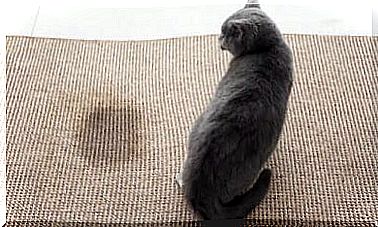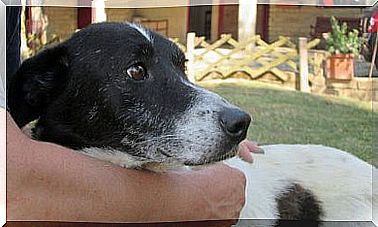How To Help A “grieving” Cat
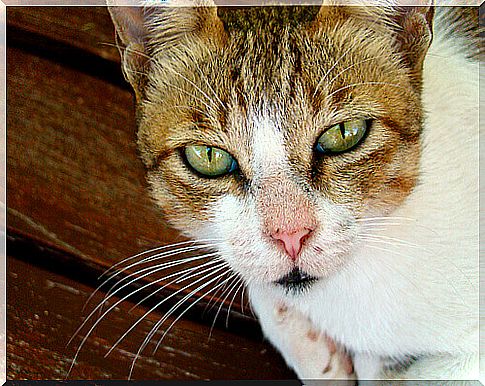
Human beings are not the only ones to feel pain due to the disappearance of a loved one. In this article we will give you some tips to help a cat in mourning for its owner.
Overcoming the death of the owner can be really tough for a cat; in fact, they show symptoms of stress, depression and anxiety, especially if the person to whom the cat was most attached to dies is.
The pain of loss
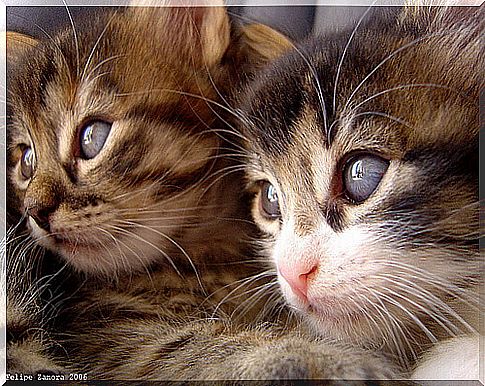
Author: Felipe Zamora
Many animals mourn the loss of a loved one, and most likely experience the same feelings of confusion and sadness as humans.
For cats, losing their owner is very painful, and to this must be added the fact of being forced to move to a new place or having to assimilate the inevitable changes in their home.
This leads them to accumulate a lot of stress: they will tend to appear distant, indolent and hide. Well, know that they do this because they feel particularly vulnerable and alone.
How can we help a cat overcome grief
During the first few days of mourning, you will see the cat’s eyes watching from some corner of the house, such as from under the bed.
You will need to be patient and try to get close without being intrusive. You can sit near the place where he is hidden and talk to him. Cats respond well to the human voice, especially a female one.
Little by little the cat will begin to seek attention and affection, it will smell you and allow you to pet it. However, this is a process that should not be forced: remember that the cat is going through a traumatic moment and any stimulus can generate a negative reaction.
Obviously, however, you must always be careful that the cat eats and drinks enough, as the lack of food could cause serious health problems. Try to bring his bowl to where he is hiding and, in case he doesn’t eat anything at all, contact the vet.
Once the cat has taken a first step forward, try to stimulate him with toys with shapes that can intrigue him and that maybe move. Perhaps at first the cat may be reluctant, but over time he will want to play.
Accompany him for as long as he wants to interact with you, he himself will decide how long to prolong the contact and, if he decides to return to his hiding place, allow him.
Many times these attitudes of rejection are not directed to the person who will take care of them, but to the situation they find themselves facing. In fact, it is normal to be annoyed and confused due to changes in one’s environment and a change in one’s lifestyle.
If the cat no longer lives in the same house, they most likely have no idea where they are and why. It will take some time to understand that the situation is permanent; at that point he will begin to explore the house.
Let him have fun
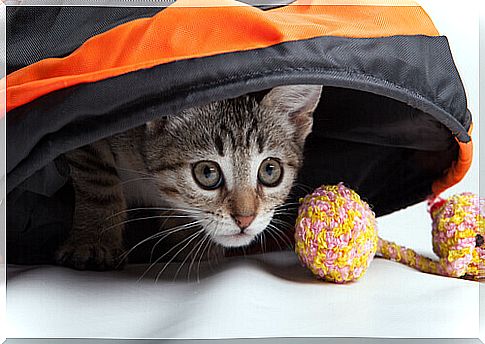
One thing that will help a grieving cat will be having something to distract himself with, as well as objects that belong to him.
If you have the chance to retrieve his bed, his toys and the bowl he ate in before, that would be really great, because it will help him adapt to the new environment.
The cat has to learn to feel safe in its new environment, so you will have to pay attention to its first experiences in the house during the adaptation period, which normally lasts a few weeks.
After a few days you can get him to eat by your hands instead of pushing his bowl under the bed. This way he will get used to your smell and associate it with a pleasant sensation. You will have to stimulate him little by little to get him out of his hiding place and make him interact with people.
You will see that in a short time the cat will return to its normal activities and get used to the new environment.
Images courtesy of BY and Felipe Zamora.
